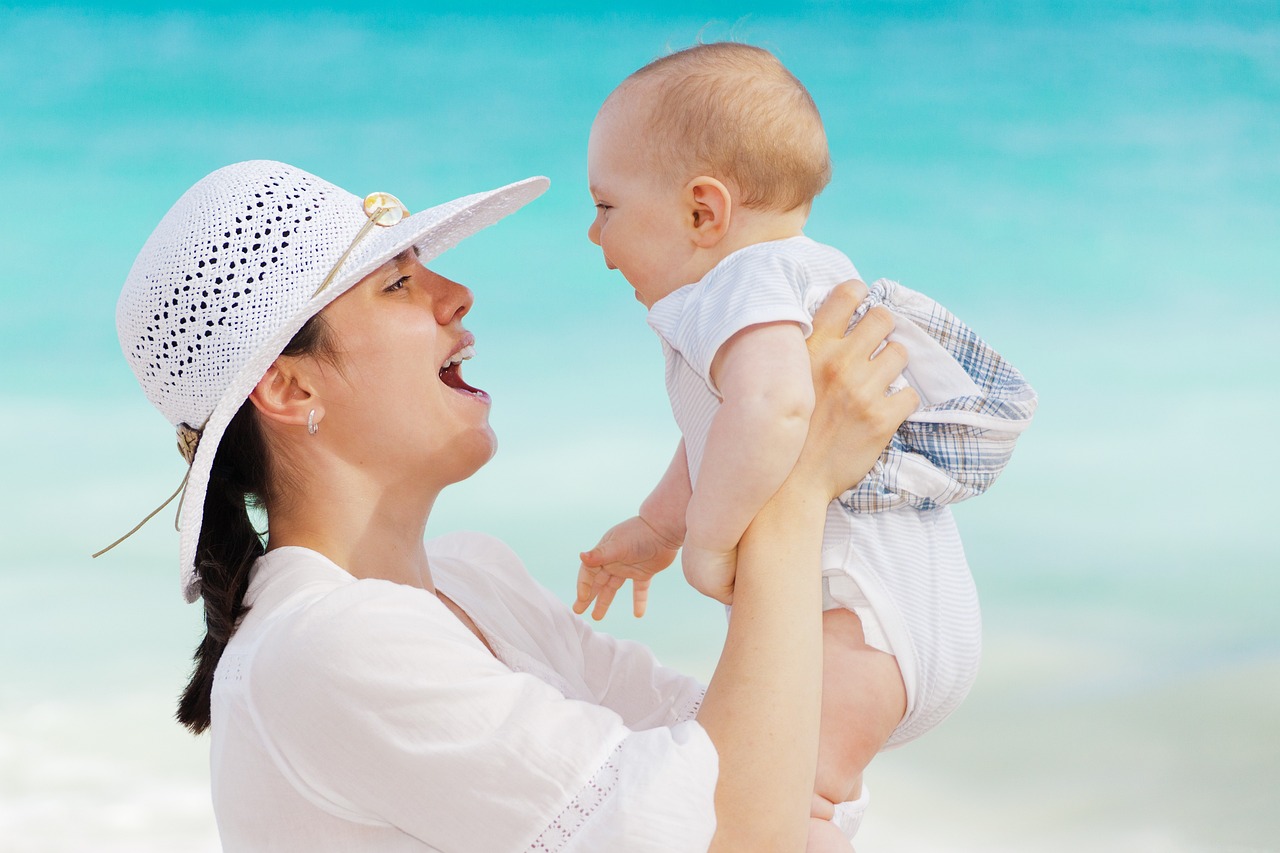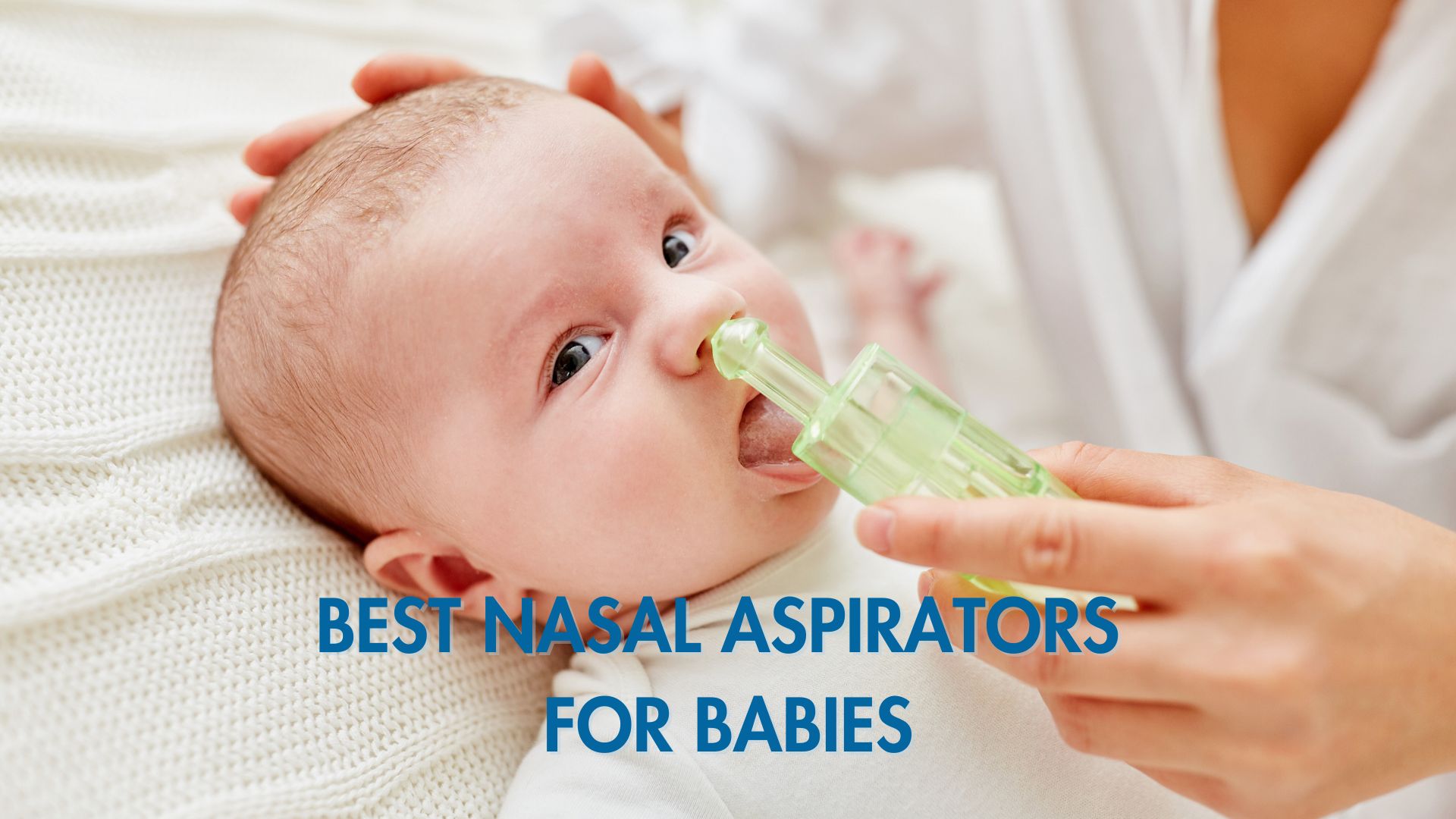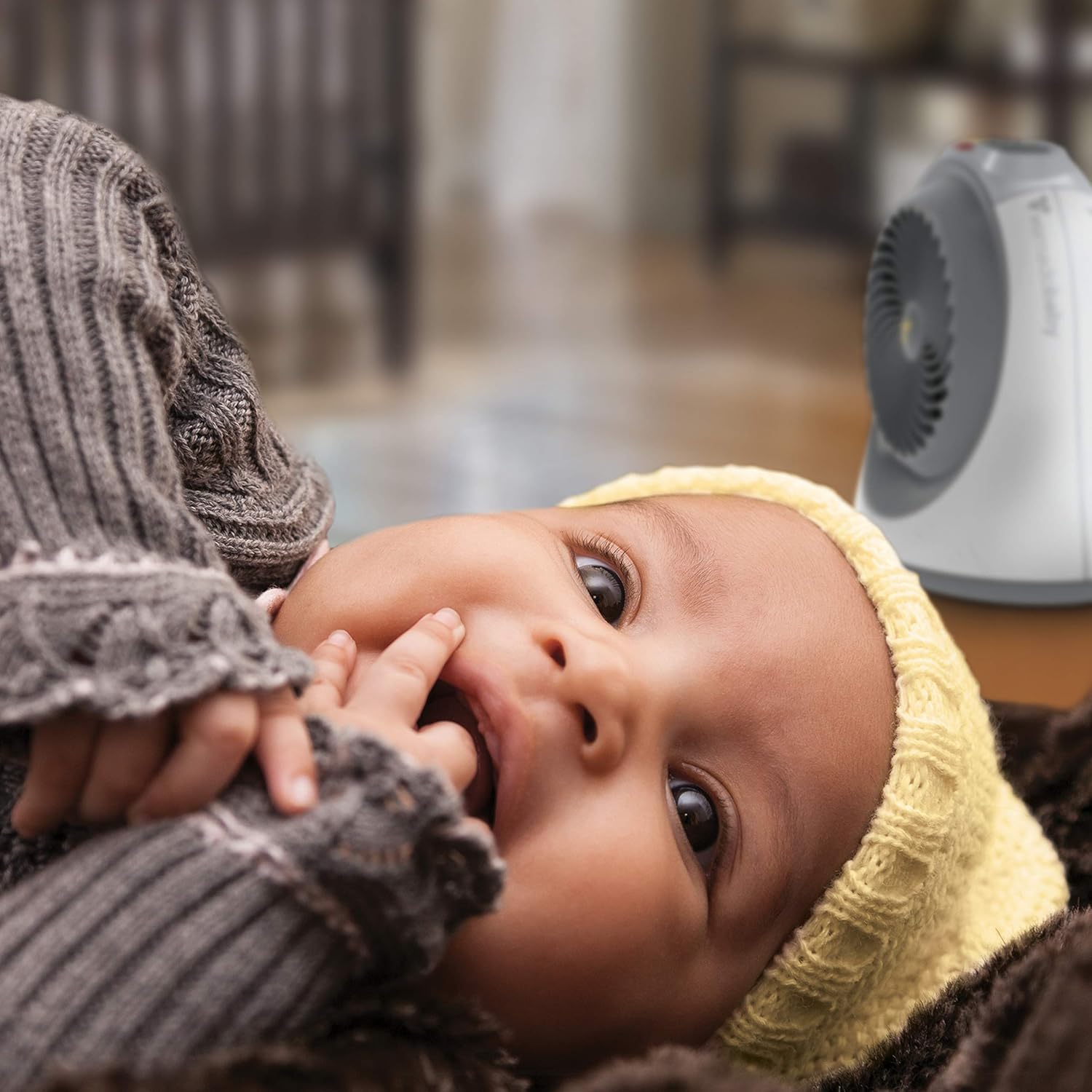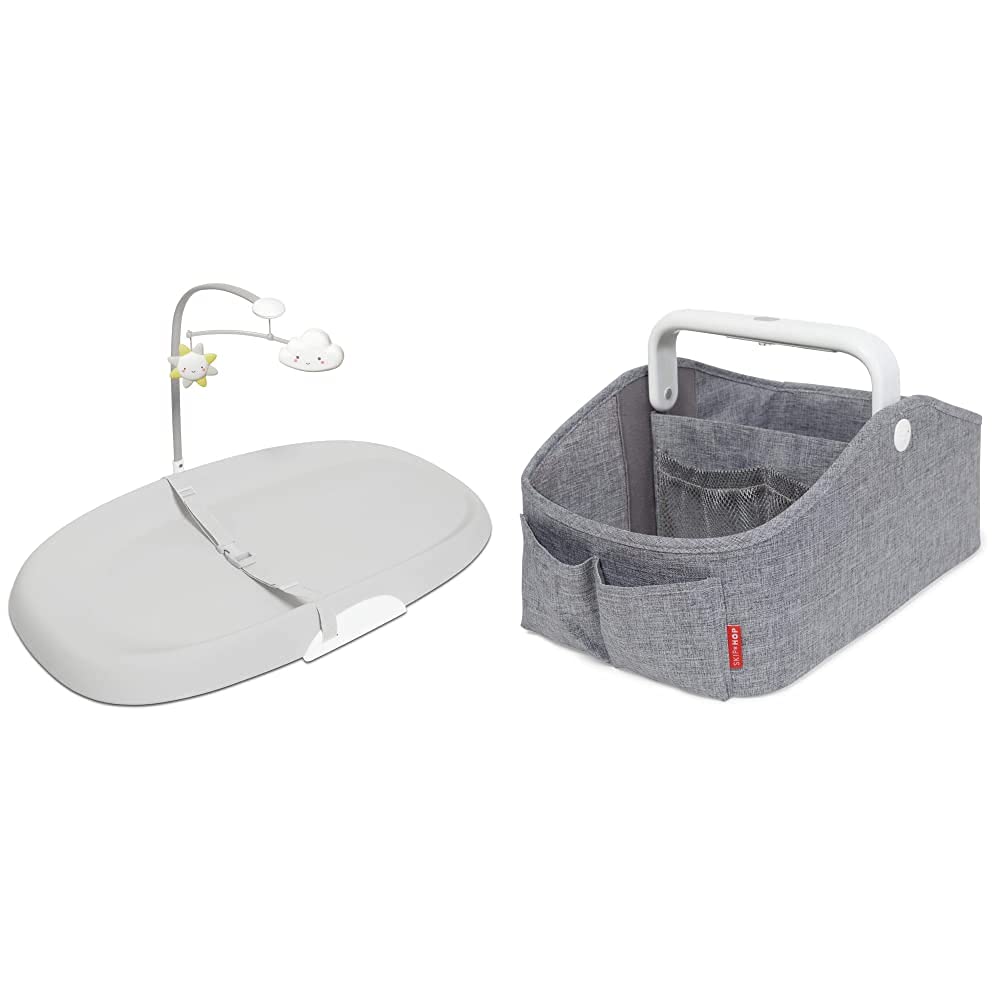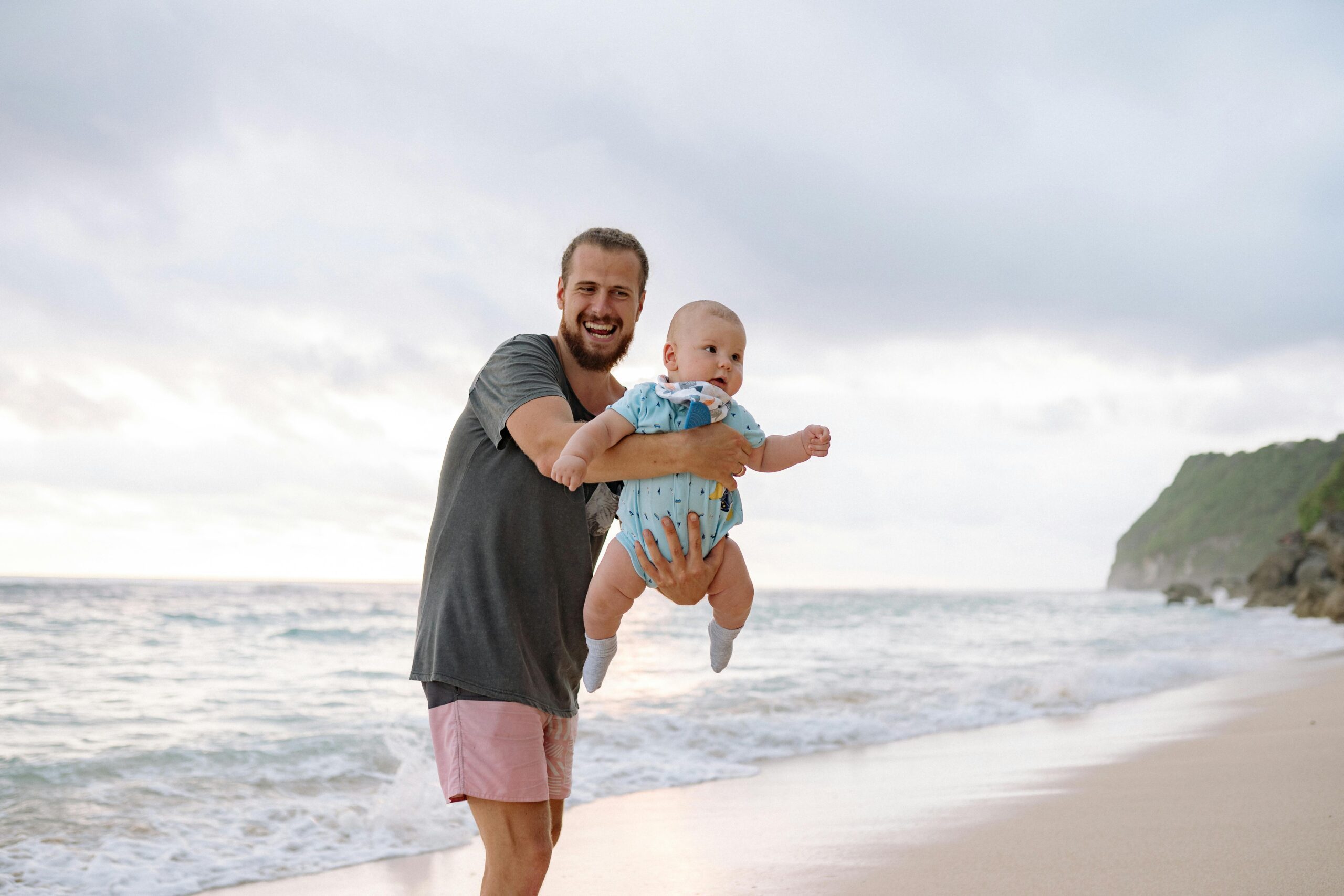
Introduction
Embarking on the journey of fatherhood brings excitement and a myriad of new responsibilities. Among the numerous activities you can introduce to your baby, swimming stands out as particularly beneficial. Early swimming not only provides a joyful bonding experience but also promotes your baby’s physical, cognitive, and emotional development. This blog post delves into the many advantages of early swimming for infants, offers essential tips for first-time parents, and suggests the best products for a successful swimming experience.
Physical Development
Enhanced Motor Skills
Swimming is a comprehensive exercise that accelerates the development of motor skills in babies. The resistance provided by water necessitates coordinated arm and leg movements, fostering better muscle control and movement patterns. This can lead to earlier achievement of physical milestones such as crawling, standing, and walking.
Babies who engage in swimming from an early age often exhibit superior physical coordination compared to their non-swimming peers. The water environment allows for unrestricted movement and experimentation with various motions without the limitations imposed by gravity. As they kick, paddle, and splash, they hone crucial motor skills essential for their overall physical development.
Muscle Strengthening
The buoyancy of water alleviates stress on developing muscles and joints, creating a safe environment for muscle strengthening. Swimming activates multiple muscle groups simultaneously, improving overall muscle tone and strength. This early physical activity sets the stage for a healthy, active lifestyle as your baby grows.
In addition to general muscle strengthening, different swimming activities target specific muscles. For instance, kicking fortifies the legs, while reaching and pulling motions enhance arm and shoulder muscles. The core muscles are also engaged as babies learn to balance and stabilize themselves in the water.
Cognitive Development
Enhanced Brain Function
Swimming has been found to enhance cognitive function in infants. The complex movements involved in swimming stimulate neural pathways in the brain, improving coordination, balance, and spatial awareness. The sensory experiences in the pool, such as the feel of water and the sounds of splashing, also contribute to brain development by enhancing sensory processing skills.
Research indicates that babies who swim regularly tend to develop better problem-solving skills and heightened observational abilities. The multi-sensory stimulation they receive in the aquatic environment accelerates brain development. Activities like catching floating toys or navigating through water obstacles necessitate cognitive processing, thereby enhancing brain function.
Emotional Benefits
Bonding with Parents
One of the most significant emotional benefits of swimming is the bonding experience it fosters between you and your baby. The physical closeness and shared enjoyment of water play strengthen emotional connections. This quality time together can reinforce your relationship and provide your baby with a sense of security and comfort.
For first-time parents, these moments in the pool can be incredibly rewarding. Holding your baby close, offering encouragement, and celebrating their little accomplishments build trust and emotional bonds that will endure. The skin-to-skin and eye contact during swimming sessions are crucial for nurturing a strong, loving relationship.
Stress Relief
Swimming can also serve as a stress-relief activity for both you and your baby. The gentle motion of water and rhythmic movements involved in swimming have a calming effect, helping to reduce stress and anxiety. This relaxation can lead to better sleep patterns and a more content baby.
The warmth and buoyancy of the water create a soothing environment that can help babies relax and unwind. For parents, focusing on your baby’s needs in the water can provide a welcome respite from daily stressors, creating a tranquil and enjoyable experience for both.
Social Interaction
Group Classes
Participating in group swimming classes introduces your baby to social settings early on. These classes are designed to be fun and engaging, allowing babies to interact with their peers in a safe and controlled environment. This early social interaction helps develop social skills and confidence.
In group classes, babies observe and imitate the actions of other children, which is crucial for social learning. The structured environment of a class also helps them learn to follow instructions and participate in group activities, laying the groundwork for future social interactions.
Peer Interaction
Regular exposure to other babies in a swimming class fosters peer interaction, essential for social development. Babies learn to observe and mimic each other, promoting social learning and communication skills. The shared experiences in the pool can lead to early friendships and a sense of community.
Watching other babies splash, laugh, and play in the water can be highly stimulating and encouraging for your child. These interactions help them learn basic social behaviors, such as taking turns and cooperating with others, in a fun and supportive environment.
Recommended Products for Swimming Lessons
Swim Diapers
Swim diapers are vital for maintaining hygiene in the pool. They are designed to contain accidents without swelling up like regular diapers. Look for reusable or disposable options that fit snugly and are comfortable for your baby.
Top Recommendation: Huggies Little Swimmers Disposable Swim Diapers are highly rated for their leak-proof design and comfortable fit. For a reusable option, consider the i play. by green sprouts Snap Reusable Swim Diaper, which comes in various cute designs.
Baby Swimsuits
Choosing the right swimsuit is crucial for your baby’s comfort and protection. Opt for swimsuits made from soft, quick-drying materials with UV protection to shield your baby’s delicate skin from harmful sun rays.
Top Recommendation: The Splash About Happy Nappy Swim Suit offers excellent UV protection and comes with a built-in swim diaper, providing both comfort and functionality.
Floatation Devices
Floatation devices provide additional safety and support for your baby in the water. There are various options available, such as swim vests, floatation rings, and armbands. Select a device that suits your baby’s age and swimming ability.
Top Recommendation: The SwimWays Baby Spring Float Sun Canopy is perfect for introducing babies to the water. It features a soft mesh seat, adjustable sun canopy, and dual inflation chambers for added safety.
Pool Toys
Pool toys can make swimming sessions more enjoyable and engaging for your baby. Look for toys that are safe, durable, and easy to grasp. Brightly colored toys that float and squirt water can add an element of fun to your swimming routine.
Top Recommendation: Nuby Floating Purple Octopus with 3 Hoopla Rings is a fun and interactive toy that encourages hand-eye coordination while keeping your baby entertained in the water.
Towels and Hooded Bath Wraps
Keeping your baby warm and dry after swimming is crucial. Hooded bath wraps and soft towels are perfect for this purpose. Choose ones made from absorbent, gentle fabrics to ensure your baby’s comfort.
Top Recommendation: Hudson Baby Animal Face Hooded Towel is both cute and functional, made from super soft and absorbent material to keep your baby cozy post-swim.
Baby Sunscreen
If you’re swimming outdoors, protecting your baby’s skin from the sun is essential. Use a baby-specific sunscreen with a high SPF, and apply it generously to all exposed areas. Reapply as needed, especially after swimming.
Top Recommendation: Thinkbaby Safe Sunscreen SPF 50+ is a popular choice among parents for its safe, non-toxic formula and high level of sun protection.
FAQs About Baby Swimming
Q: At what age can I start taking my baby swimming? A: You can start introducing your baby to swimming as early as six weeks old, provided they have had their first set of vaccinations and your pediatrician gives the go-ahead.
Q: How long should each swimming session be? A: For young babies, keep swimming sessions short, around 10-20 minutes initially, and gradually increase the duration as your baby becomes more comfortable in the water.
Q: What should I do if my baby is afraid of the water? A: Take it slow and be patient. Start with gentle splashing and gradually introduce your baby to deeper water. Always ensure that swimming sessions are fun and stress-free.
Q: How can I ensure my baby’s safety in the pool? A: Always supervise your baby closely, even if they are using floatation devices. Enroll in infant CPR and first aid classes to be prepared for emergencies.
Q: What if my baby swallows pool water? A: Small amounts of swallowed pool water are usually harmless. However, if your baby ingests a significant amount or shows signs of distress, seek medical attention immediately.
Q: How often should I take my baby swimming? A: Aim for at least once a week to help your baby become comfortable and familiar with the water. Regular sessions can enhance the developmental benefits and make swimming a routine part of their life.
Q: What are the signs that my baby is ready to start swimming lessons? A: Look for signs of interest in water play, such as splashing during bath time and showing curiosity about water. If your baby enjoys being in the water and appears comfortable, they are likely ready for swimming lessons.
Conclusion
Early swimming offers a multitude of benefits for babies, from physical and cognitive development to emotional well-being and social skills. As a first-time parent, introducing your baby to swimming can be a rewarding and enjoyable experience that strengthens your bond and supports your baby’s overall growth.
Swimming not only provides a fun and engaging activity but also promotes a healthy lifestyle from an early age. By following the tips and recommendations outlined in this blog, you can ensure that your baby’s introduction to swimming is safe, enjoyable, and beneficial.
First-Time Parent Hacks Summary
- Start Early: Introduce your baby to swimming from around six weeks old, with your pediatrician’s approval.
- Focus on Comfort: Choose the right swim diapers, swimsuits, and floatation devices to ensure your baby’s comfort and safety.
- Engage and Play: Use pool toys and interactive games to make swimming sessions fun and stimulating.
- Prioritize Safety: Always supervise your baby in the pool and consider taking infant CPR and first aid classes.
- Consistency is Key: Regular swimming sessions can maximize the developmental benefits and make swimming a beloved routine for your baby.
Join the Conversation
We hope you found this guide helpful and inspiring. We’d love to hear about your experiences with introducing your baby to swimming. Please feel free to share your stories, tips, and any questions in the comments section below. If you found this article useful, don’t forget to share it with other first-time parents who might benefit from these insights. Let’s build a supportive community together!
